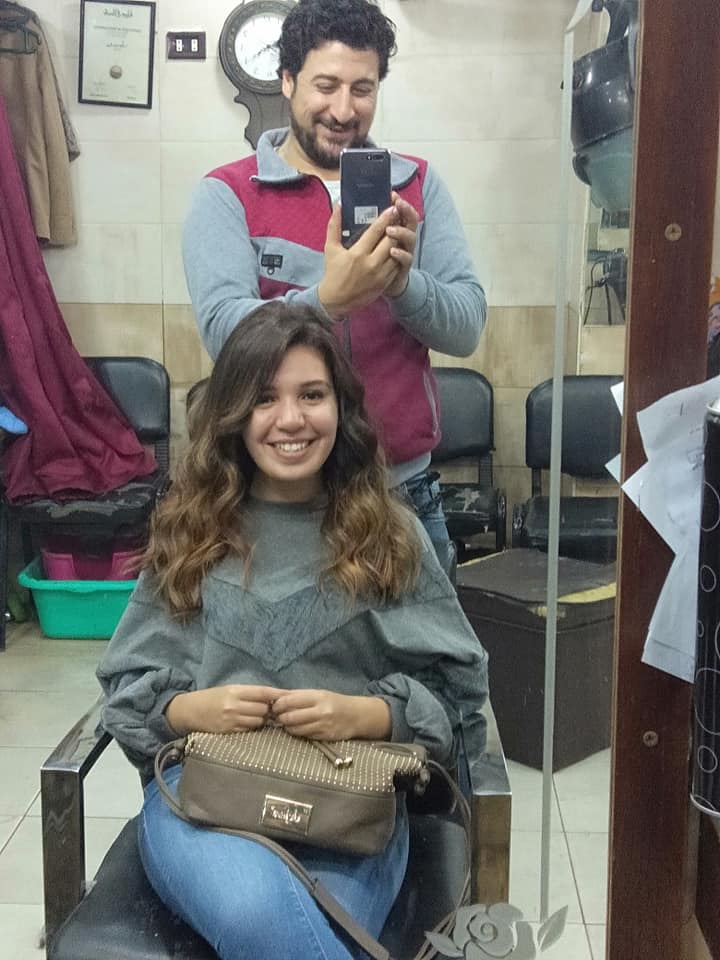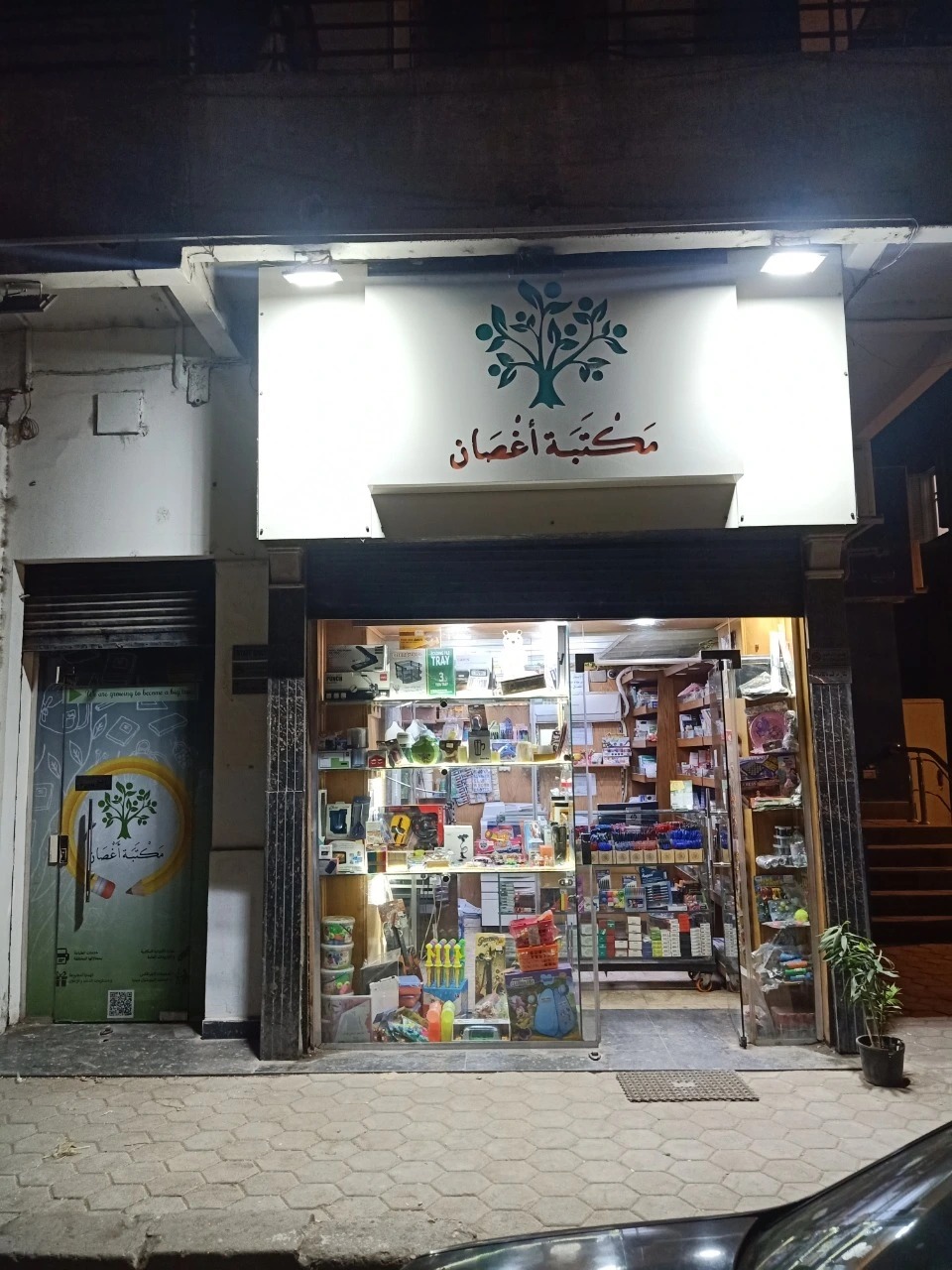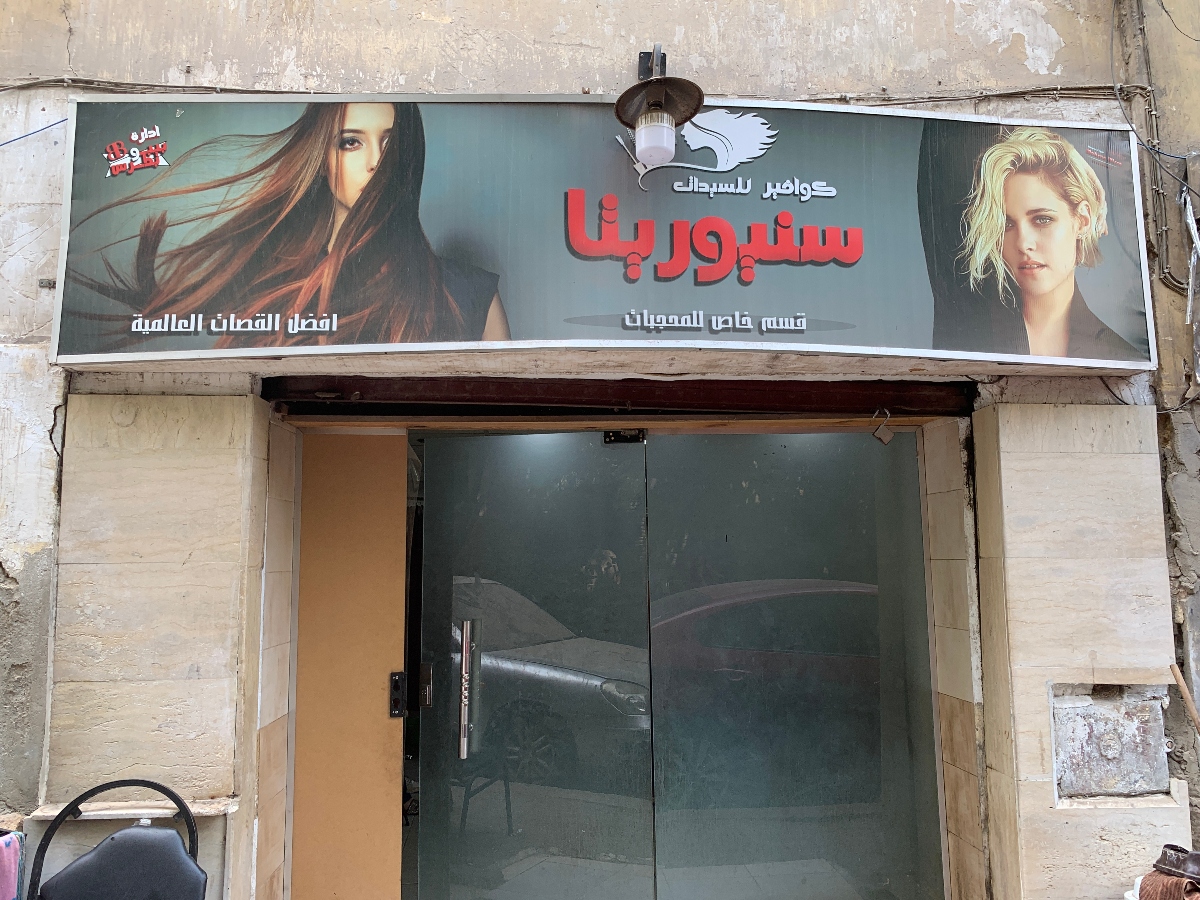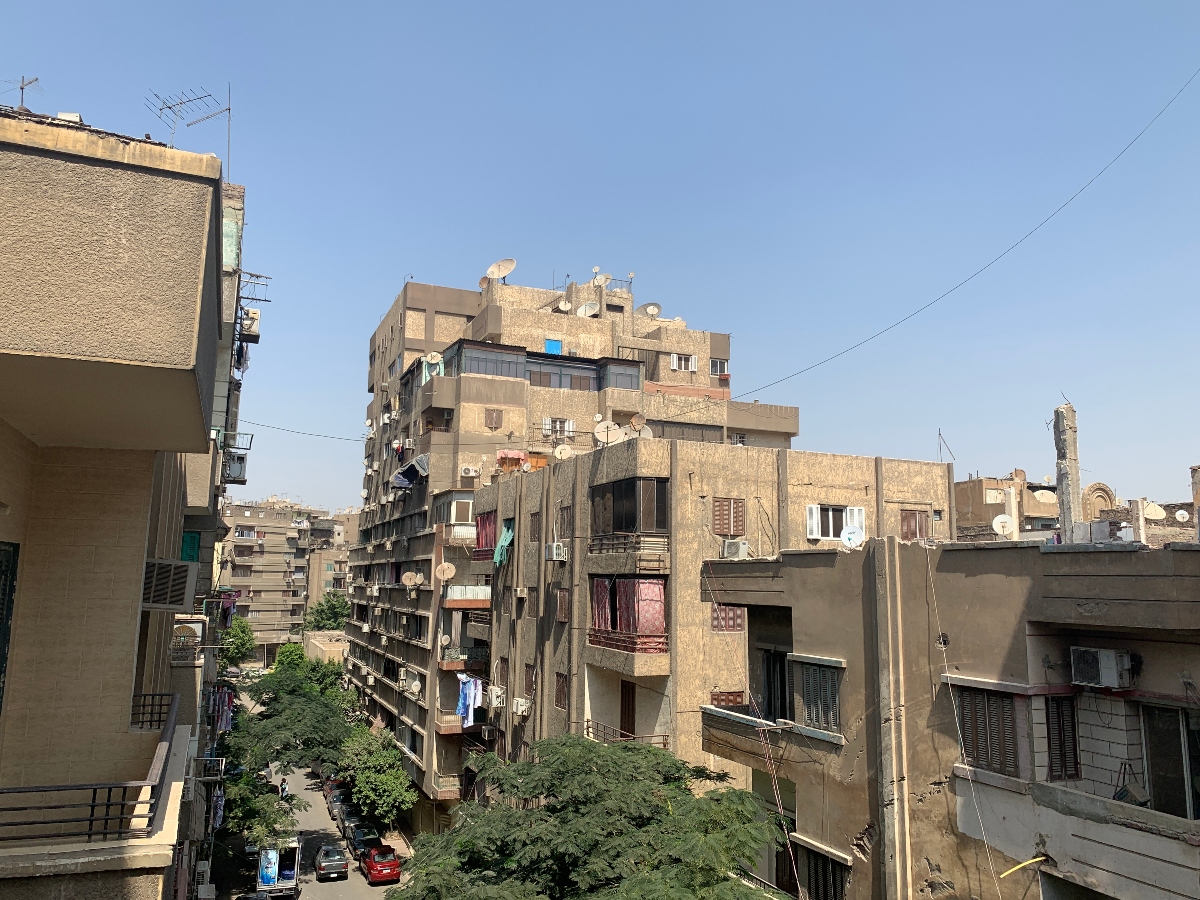Popularly known as Bebo, Bebawy Abdelmeseeh is a hardworking hairdresser and owner of Seniorita Beauty Salon, located in the vibrant neighborhood of El Daher in Cairo. Seven years ago, Bebo decided to move away from working in a beauty salon in Madinet Nasr to rent a shop in El Daher and start his own business.
Most women in the area, both young and old, know Bebo. They have either visited him for a trim, asked him for a new hair color, or at the very least heard of him. His decent character has been his main source of marketing for years, not to mention his talent as a hairdresser.

Photo via Facebook
In 2020, many in Egypt and beyond suffered in different ways as a result of the COVID-19 pandemic, which has claimed more than 16,000 lives across the country, according to Egypt’s Ministry of Health and Population. Many employees lost their jobs as companies cut down expenses. Business owners themselves suffered more than many employees, between figuring out how to pay salaries and keeping their businesses alive.
Some businesses were also more vulnerable than others because of a dependence on consumer behavior. While many suspended operations and others permanently shut down, a number of small businesses are still struggling to operate, while keeping in mind the risk of closure with any new COVID-19 wave.
For Mina Youssef, founder and owner of Aghsan Stationery, a new COVID-19 wave accompanied by harsh restrictions could threaten his main source of income.
“The pandemic halted all my client work. As a stationery that also works in printing, we mainly work with school students and since schools shut down there was no photocopying or typing and printing documents,” Mina tells Egyptian Streets.

Photo via Mina Youssef
“We type court cases for lawyers, and courts also shut down. We also work with churches for their events and trips where they customize gifts and giveaways during conventions, all these trips and events stopped and church services closed altogether. So our main source of income was completely gone.”
Established in 2017, Aghsan Stationery handles more than the standard selling of school and office supplies like any other stationery. The promising startup also specializes in printing, scanning, and photocopying documents, as well as banners roll ups, invitation cards, in addition to other client-based work such as graphic and motion graphic design services for Facebook pages.
Despite the impacts on his business, Mina said they temporarily shut down in 2020 to keep people safe.
“We closed down the stationery for two weeks as an initiative to spread awareness on the importance of staying safe at such a critical time, and encouraged everyone else to do the same to curb the spread of the virus. But the salaries of my employees were not affected,” Mina says, adding that despite the financial impact on his business, he ensured his staff would continue to be paid their salaries as he understood they too had their own families to support.
Hairdresser and business owner, Bebo, echoes Mina’s distress.
“When travel was banned, we could not get most of our products from abroad like we usually do, such as hair dyes, so we were also delayed because we didn’t have enough products to work with. People were also not leaving their houses, churches and wedding halls were closed, so we used to open the salon in the morning and just sit idle,” Bebo says, as he reflects back on a time when his entire workplace was on an indefinite pause.

“I used to give my staff half of their salary for working half the month, and the other half I would let them be on leave. So I would pay them a salary for the time they work, because I did not want to let any of them go,” he continues, while waving back to an old lady passing by.
Pre-pandemic dreams
Prior to the COVID-19 pandemic, Mina had hoped to open another branch for Aghsan Stationery by 2020.
Back-to-school is usually the most important time of the year for any stationery owner, with September and October being their peak months. For Aghsan Stationery, its first two seasons, back-to-school 2017 and 2018, were encouraging. They were times that pushed Mina and his staff to move forward because they introduced unique services like printing name tags and pictures on labels and school bags, services that no one else offered in the entire El Daher neighborhood.
“When the government announced that online education will continue, the back-to-school 2020 season was a total failure for us. All the goods that we bought stayed with us, with some of it being sold later bit by bit throughout the school year. This was a rough time and caused liquidity problems for us because we had endless commitments,” Mina painfully remembers as he sips on his warm cup of coffee.

“Back-to-school 2021 is risky. We bought goods, students are expected to go to school, but parents are skeptical about this academic year so they are still not too confident to buy all their supplies in case schools shut down again due to another COVID-19 wave,” he adds doubtfully.
Mina is still struggling to regain his clients and demand for his goods and services. Since stationery and printing services are not essential, unlike food and beverages for example, people think twice before purchasing anything from the stationery now. Even clients and companies who make bulk orders are hesitant when it comes to the items they purchase and always prefer to buy less than they normally would as they’re worried about their expenses. Customers who would come to buy a gift worth EGP 100, now look for something that is cheaper.
For Bebo, the number of customers visiting his salon has also dropped. According to him, women often liked to visit the salon to get their hair and nails done before they travelled to a ‘masyaf’ (a summer getaway). This summer, many did visit but not in the same numbers as prior to the COVID-19 pandemic.
“People are still hesitant. I can say we’re back with an average of 50 percent, not 100 percent, but at least better than the time of peak COVID-19 spread,” Bebo concludes.
Business today
Mina was eager to look for practical alternatives to be able to stay afloat amid the pandemic.
“I started expanding my business using social media. Using sponsored ads on Facebook, we advertised through our Facebook page that we are offering typing services, graphic design services, etc.,” he says.
Although the COVID-19 pandemic negatively impacted Mina’s business, he managed to come out of it with some successes.
“We launched a website and an active delivery service,” Mina explains, adding that instead of marketing their services through flyers and brochures, Aghsan Stationery launched a website for all its services. Seeing that most people have become extremely reliant on delivery services and prefer to only leave the house when necessary, they also introduced a delivery service where customers can list the items they wish to purchase through the website, and the store would contact them to confirm the order and later deliver it to them.
Likewise, Bebo acknowledges that there was a time when he was forced to introduce his services in new ways that might be more convenient for his customers during that time.

Photo via Facebook
“We posted on our Facebook page announcing that we are offering home services for people during the pandemic, but there was no response, people were scared at the time, so it didn’t really work out,” he explains.
The pandemic has pushed the Egyptian government to accelerate its digital transformation plan in multiple sectors, including real-estate, tourism, education, trade, among others. In 2020, Egypt introduced a new banking law to allow the launch of digital banks.
Bebo, who is grateful that 2020’s stricter lockdown is over, hopes the fourth COVID wave will not force them to shut down again. Yet regardless of the difficult time he has been through, he still has faith in a brighter tomorrow.
“God never forgets his children,” he says, “So I’m sure we will be fine.”
Subscribe to the Egyptian Streets’ weekly newsletter! Catch up on the latest news, arts & culture headlines, exclusive features and more stories that matter, delivered straight to your inbox by clicking here.







Comments (3)
[…] Source link […]
[…] Source: https://egyptianstreets.com/2021/09/22/how-two-small-cairo-businesses-survived-covid-19// […]